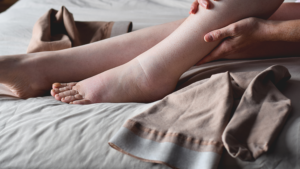While some exercises may be challenging for individuals with lymphedema, there are plenty of suitable options available. Low-impact activities such as walking, swimming, and cycling are generally well-tolerated. These exercises promote circulation, muscle strength, and flexibility without putting excessive strain on the lymphatic system. Engaging in activities that encourage lymphatic flow, such as deep breathing exercises or yoga, can also be beneficial for managing lymphedema. For individuals with lymphedema, incorporating exercise into their routine is essential for overall well-being. However, striking the right balance between staying physically active and managing lymphedema symptoms is crucial. Understanding how lymphedema affects exercise and identifying suitable activities can empower individuals to embrace fitness while maintaining their lymphatic health.
How does lymphedema affect exercise?
Lymphedema can present challenges when it comes to exercise. Swelling and discomfort may arise during physical activity, limiting a person’s range of motion and impacting their ability to engage in certain exercises. Additionally, there is a concern of overloading the affected lymphatic system, which can lead to further fluid retention and worsen lymphedema symptoms. These factors can make individuals with lymphedema hesitant to participate in physical activities.

What exercise is best for lymphedema?
While some exercises may be challenging for individuals with lymphedema, there are plenty of suitable options available. Low-impact activities such as walking, swimming, and cycling are generally well-tolerated. These exercises promote circulation, muscle strength, and flexibility without putting excessive strain on the lymphatic system. Engaging in activities that encourage lymphatic flow, such as deep breathing exercises or yoga, can also be beneficial for managing lymphedema.

How does lymphedema affect walking?
Walking is an excellent low-impact exercise; however, lymphedema can influence walking patterns and mobility. Swelling in the legs can make walking uncomfortable and challenging. To manage lymphedema while walking, individuals can wear compression garments for support and elevation during rest. Practicing proper skin care and staying hydrated are also crucial to reduce the risk of complications during exercise.
What are the assessment findings of lymphedema and how does it affect exercise?
Before starting an exercise program, it is essential to undergo a proper assessment and evaluation. Healthcare professionals experienced in managing lymphedema can conduct thorough assessments to determine the appropriate level of exercise for each individual. They consider factors like the stage of lymphedema, the affected body part, and the person’s overall health. This personalized approach helps tailor an exercise routine that suits the individual’s unique needs and condition.

Finding the Right Balance
Striking the right balance between exercise and managing lymphedema is essential. Start with gentle exercises and gradually increase the intensity based on how your body responds. Pay attention to any discomfort or increased swelling during or after exercise, as these may indicate that adjustments are needed. Consulting a healthcare professional or a certified lymphedema therapist can provide valuable guidance in finding the right exercise routine that suits your condition.
Conclusion
Incorporating exercise into your routine is beneficial for individuals with lymphedema, but finding the right balance is key. Low-impact activities that promote circulation and muscle strength are generally well-tolerated. However, it’s crucial to listen to your body and make adjustments as needed. By working with health and fitness professionals and embracing suitable exercise routines, individuals with lymphedema can achieve a balance between fitness and managing their condition effectively.
For more information and resources on lymphedema management, you may consider exploring the following products:
1 Hour consultation: A personalized consultation with lymphedema coach Amanda Sobey.
16-Week Ultimate Lymphedema Journey: A comprehensive program designed to guide and support individuals on their lymphedema journey.
The Lymphie Box: A curated subscription box filled with products and resources to help manage and cope with lymphedema.

